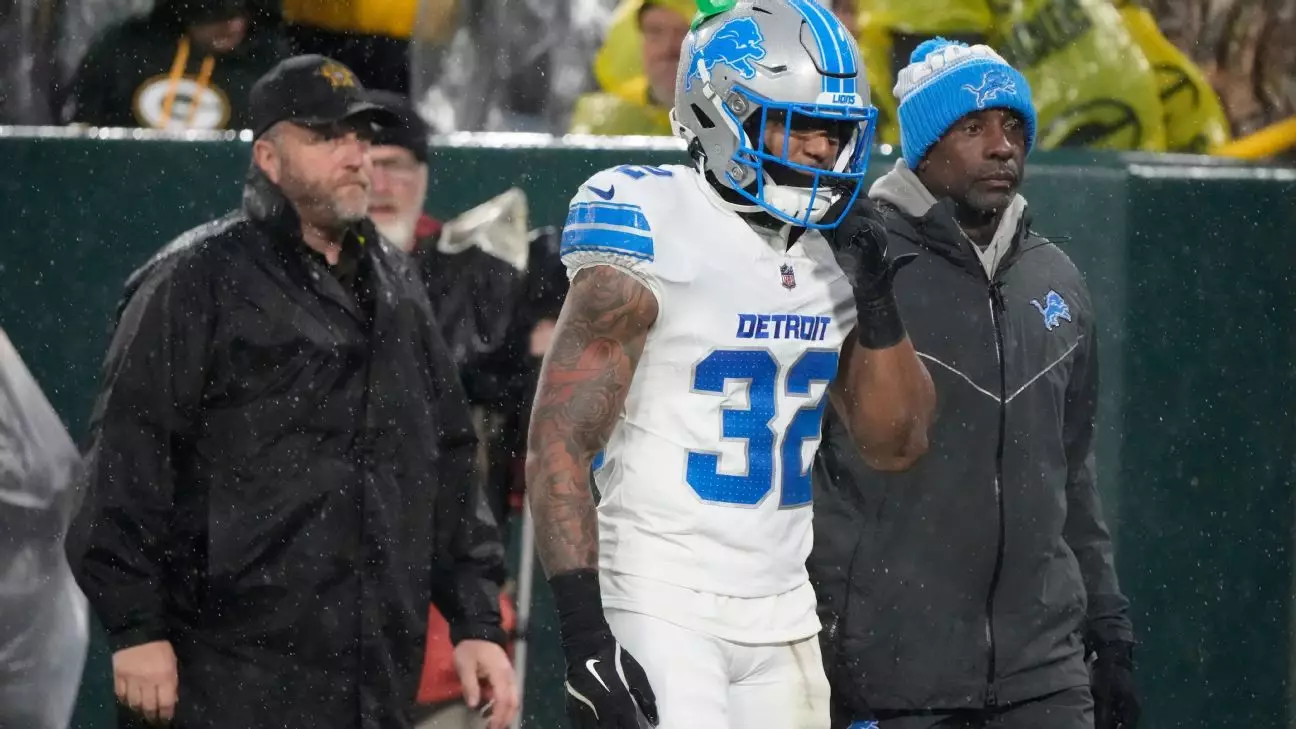The NFL routinely showcases moments of triumph and tribulation for its players, reflecting the delicate balance between intense competition and personal accountability. In a recent game between the Detroit Lions and the Green Bay Packers, defensive back Brian Branch found himself at the heart of a controversy that flipped the narrative from team success to individual missteps. Branch’s ejection for a late hit, compounded by his emotional response to the spectators, raises questions about sportsmanship, maturity, and the lesson that can be drawn from such incidents.
During the contest held at Lambeau Field, Branch executed a late hit on Packers receiver Bo Melton, which led to his dismissal from the game. Although the Lions managed to secure a 24-14 victory, Branch’s actions encapsulated a moment of varying emotions and heightened stakes typical of an intense rivalry matchup. The late hit not only resulted in a penalty but also in a reaction that, unfortunately, became the story that overshadowed the day’s achievement. His impulsive gesture towards the crowd—a middle-finger salute—further compounded the issue, highlighting the ongoing challenges NFL players face in maintaining composure under pressure.
The immediate aftermath saw Branch reflecting on his actions, acknowledging the heat of the moment that drove him to such a display. His sensibility in admitting fault is commendable; it signifies a level of self-awareness that many young athletes struggle to cultivate. “That was just the heat of the moment for me,” Branch stated, displaying a rare honesty not often associated with athletes under scrutiny. This admission serves not only as an apology but also as a pivotal learning moment, showcasing his commitment to personal growth and responsibility.
Coaches play an instrumental role in shaping athletes’ growth, and for Branch, the guidance he receives is paramount. Defensive assistant Jim O’Neil’s assessment of the hit suggests an understanding that the intent behind it wasn’t malicious—this reflects a nuanced approach towards player development. O’Neil’s desire to find a teaching moment in a challenging situation is critical for fostering resilience amongst young players.
Furthermore, head coach Dan Campbell’s support for the return of wide receiver Jameson Williams from a suspension for violating the NFL’s performance-enhancing substances policy underscores another layer of complexity in athlete management. Campbell’s approach to re-integrate Williams into the team showcases an environment focused on redemption and progress rather than punishment. Campbell’s comments reflect a commitment to helping players learn from their experiences, which is vital in a high-stakes profession where each decision is scrutinized.
Branch’s admission of guilt and his commitment to improving his conduct open a conversation about how athletes are expected to navigate the pressures of professional sports. The league is rife with examples of players whose careers are marred by incidents of immaturity, often resulting in public backlash and professional setbacks. However, Branch, along with Williams, illustrates that acknowledgment and reflection can lead to rehabilitation and growth, enriching the individual and the team culture.
The dialogues initiated by incidents like these are critical; they not only highlight the evolving standards of player behavior but also the supportive frameworks that need to exist within coaching and team dynamics. With both Branch and Williams poised to contribute positively to the Lions’ season, the hope is that they continue on a path of accountability and improvement—reinforcing the idea that even in the face of adversity, the opportunity for growth is ever-present.
The journey to maturity in professional sports is fraught with challenges, but it also holds the promise of development. Brian Branch’s experience offers vital lessons on responsibility, the implications of emotional reactions, and the significance of supportive coaching. The NFL should take pride in fostering environments where players learn from their actions, thus ensuring that games are not merely contests of physical prowess but also arenas for personal growth and character development. As the Lions prepare for future clashes on the field, the experiences of Branch and Williams may come to define not just their individual paths, but also the collective ethos of their team.

